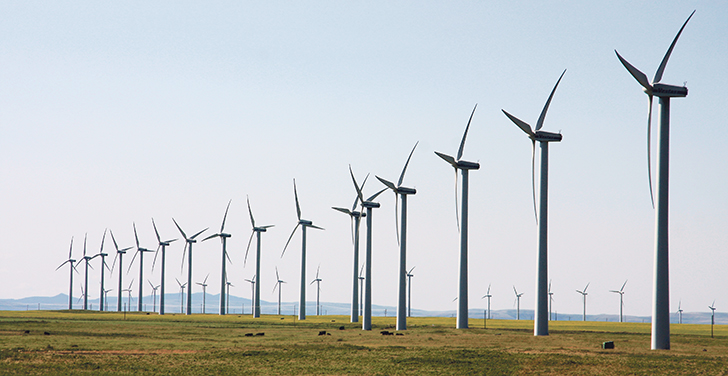READYMADE, Alta. — Negotiating with solar and wind project developers is not the same as negotiating for oil and gas development, says Alberta’s Farmers Advocate Office.
Landowners need to know this, now that provincial and federal carbon policies are fostering more renewable energy proposals.
Among the differences:
- Alberta’s Surface Rights Act does not apply to wind or solar leases.
- There is no right of entry or expropriation process.
- The renewable energy sector does not have to use licensed land agents for negotiations.
- The policies on decommissioning and reclaiming solar and wind projects have yet to be written.
Read Also

Critical growing season is ahead for soybeans
What the weather turns out to be in the United States is going to have a significant impact on Canadian producers’ prices
Michele Del Colle, an energy, utilities and policy specialist with the Farmers Advocate Office, said farmers have been inquiring about renewable energy lease arrangements. That prompted the office to organize a series of information sessions across the province.
“Landowners in Alberta are very familiar with the oil and gas industry, the neighbours that are knocking on their door, and they were really comparing negotiations with renewable energy, with oil and gas,” Del Colle said.
“That can’t be farther from what is actually happening.”
Participation in any solar or wind project is voluntary on the part of landowners, she added.
“If you say no when a company comes to you, that’s the end of the negotiations. They can’t force themselves onto your land. At the same time, if you say no, they might show up at your neighbour’s door and put the development or the plant on your neighbour’s land and you will have the impact but not the financial benefits.”
Renewable energy companies do not have to use licensed land agents, as the oil and gas sector does, so negotiators won’t have to follow the professional codes of ethics that govern licensed agents.
Del Colle said legal advice is strongly advised before any landowner signs an agreement. Contracts may be in effect for many years, given the life of renewable energy projects that can span 20 years or more.
Landowners should view initial contract offers as merely the start of a negotiation, she said. In addition to liability and indemnity clauses, maintenance issues and termination clauses, they should consider potential tax implications, especially if the project requires rezoning.
Contracts should have a termination clause so that landowners can extract themselves and do what they wish with their land if a project doesn’t get underway within a specified time.
Del Colle said many contracts request landowner confidentiality once the deal is made.
The Farmers Advocate Office advises against it.
“Really your best conversation (is) with your neighbours and your surrounding community because they’re the other ones that know,” she said.
“Since there is no surface rights board to set the rate for compensation if right of entry is ordered, it’s best for you to be talking with your neighbours.”
What’s a fair price? It’s up to the landowner, said Del Colle. Compensation can be offered in different ways, from full payment, annual rental, a fee based on energy production, payment for adverse effect and other options.
Any power plant expected to generate more than 10 megawatts requires approval from the Alberta Utilities Commission.
Jim Law, external relations director for the commission, said there is a thorough review process of applications and opportunity for landowners to register concerns or other feedback about project proposals.
Applicants are required to conduct public consultation with anyone directly affected.
“What you say and how insistent you are about certain things can certainly influence the application that eventually comes to us,” said Laws.
The company has to include information on objections when it files its proposal with the Alberta Utilities Commission and must indicate whether those objections have been resolved or not.
If not, a public hearing may be triggered and held in the community affected.
Jeanna Schuurman, communications specialist with the Farmers Advocate Office, said Alberta does not have policies on decommissioning or reclaiming renewable energy projects and sites, although they are being developed.
“There’s a lot of uncertainty in this area,” she said.
Anyone signing contracts now should ensure they include details on reclamation. Unlike oil and gas, there is no equivalent “orphan well” fund when it comes to renewables.
Similarly, there is no policy on what happens to the land if a renewable energy company goes into receivership or bankruptcy or sells a project to another company.
The Farmers Advocate Office has prepared a document, Negotiating Renewable Energy Leases, that is available at www1.agric.gov.ab.ca/$Department/deptdocs.nsf/All/agdex16246.


















